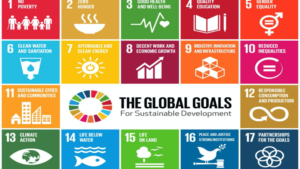South Africa’s assumption of the G20 presidency in 2025 presents a unique and timely opportunity for the African continent. This report provides a comprehensive analysis of the potential implications and opportunities arising from this presidency, focusing on critical areas such as economic development, global health, climate change, and enhanced representation on the global stage. It also examines the inherent challenges South Africa faces in effectively championing African interests within the G20 framework and proposes strategic considerations for maximizing positive outcomes. This analysis aims to illuminate the potential impact of South Africa’s G20 leadership on Africa’s development trajectory and advocate for strategies that ensure a fruitful and impactful presidency.
Introduction
South Africa’s upcoming G20 presidency in 2025 marks a significant moment with profound implications for the African continent. As the sole African member of this influential global forum, South Africa’s leadership provides an unparalleled platform to amplify Africa’s voice and advocate for its development priorities on the world stage. This presents not only an opportunity for Africa to shape the global agenda, but also a responsibility for South Africa to effectively represent the diverse needs and aspirations of the continent.
The G20, established in 1999, is a crucial intergovernmental forum comprising 21 countries and 2 regional organisations: African Union and European Union, representing approximately 85% of global GDP, 75% of international trade, and two-thirds of the world’s population (G20, 2023)[1]. Africa’s development trajectory is inextricably linked to global economic and political dynamics. The continent faces persistent and multifaceted challenges, including poverty, inequality, infrastructure deficits, vulnerability to climate change, and the lingering impacts of the COVID-19 pandemic (UNECA, 2022). South Africa’s unique position within the G20 provides a vital platform to address these challenges and advocate for the continent’s development priorities within a global context. This presidency offers a unique opportunity to bridge the gap between developed and developing economies, fostering a more inclusive and equitable global order – an order where Africa plays a more prominent and influential role.
[1] The Group of Twenty (G20) is an international forum of both developing and developed countries which seeks to find solutions to global economic and financial issues. About G20 – G20 South Africa
Developments in the Literature
Existing literature emphasizes the significant role of G20 presidencies in shaping the global agenda (Cooper, 2010). Scholarly work highlights the presidency’s influence in setting priorities, driving negotiations, and fostering consensus among member states (Kirton, 2013). Research also explores the potential for G20 presidencies to promote regional interests, with examples from previous presidencies demonstrating the ability to bring regional issues to the forefront of global discussions (e.g., Mexico’s focus on development during its 2012 presidency). These examples serve as valuable case studies for understanding the potential impact of South Africa’s presidency on African development. However, the literature also acknowledges the limitations of G20 presidencies, particularly concerning implementation challenges, the need for sustained commitment from member states beyond the presidency’s tenure, and the complexities of navigating diverse national interests (Woods, 2016). This highlights the need for strategic planning and effective diplomacy by South Africa to ensure tangible and lasting outcomes.
Potential Economic and Social Impacts
South Africa’s stated focus on inclusive growth and sustainable development presents significant potential economic and social benefits for Africa. The presidency can be strategically leveraged to attract increased Foreign Direct Investment (FDI), expand intra-African and global trade opportunities, address debt vulnerabilities faced by many African nations, and drive crucial infrastructure development. These potential economic gains can contribute directly to poverty reduction, job creation, improved access to essential services like healthcare and education, and enhanced social stability. For instance, actively promoting the African Continental Free Trade Area (AfCFTA) through the G20 could significantly boost intra-African trade, accelerate economic integration, and strengthen Africa’s position in global value chains. This could lead to increased market access for African businesses, stimulating growth and development.
Diagram 2: Sustainable Development Goals

Source: Africa Dialogue Consulting, 2023[1]
[1] https://dialogues.africa/agenda-2063-the-africa-we-want/
Table 1: Key Overlapping Priorities: South Africa’s G20 Presidency and AU Agenda 2063
|
South Africa’s G20 Priorities |
Alignment with AU Agenda 2063 |
Potential Benefits for Africa |
|
Inclusive Growth & Sustainable Development |
Goal 1: A prosperous Africa based on inclusive growth and sustainable development |
Increased FDI, trade expansion (especially intra-African trade via AfCFTA promotion), poverty reduction, job creation, improved living standards, enhanced economic resilience. |
|
Strengthening Multilateralism |
Goal 16: Peace, security and stability. Goal 17: Strengthening global partnerships |
Enhanced participation in global governance structures, a more predictable and stable trade environment, increased access to international cooperation and support, amplified African voice in global decision-making, promotion of peaceful conflict resolution mechanisms. |
|
Climate Change & Just Energy Transition |
Goal 7: Environmentally sustainable and climate resilient economies and communities |
Increased access to climate finance for adaptation and mitigation efforts, support for technology transfer and capacity building in renewable energy, promotion of sustainable development pathways, enhanced resilience to climate change impacts, fostering a just transition to low-carbon economies that prioritizes job creation and social inclusion. |
|
Transforming Education and Skills |
Goal 1: A prosperous Africa based on inclusive growth and sustainable development. Goal 4: Transformed economies. Goal 5: Full gender equality in all spheres of life. |
Improved human capital through enhanced education and skills development programs, increased competitiveness in the global economy, fostering innovation and entrepreneurship, addressing skills gaps and unemployment, promoting gender equality in education and the workforce, creating a more skilled and adaptable workforce capable of driving economic transformation. |
|
Global Health Architecture |
Goal 3: Good health and wellbeing |
Strengthened healthcare systems, improved pandemic preparedness and response mechanisms, increased access to essential medicines and vaccines, enhanced collaboration on health research and development, improved health outcomes across the continent, building more resilient health systems capable of withstanding future health crises. |
Source: CRA Global Development, 2025
Political Implications and Challenges
Politically, South Africa’s presidency provides a crucial platform for amplifying Africa’s voice on the global stage and fostering stronger partnerships with key G20 members. This presents an opportunity to advocate for reforms in global governance structures to ensure greater African representation and participation. However, navigating the complex geopolitical landscape within the G20, ensuring the effective implementation of agreed-upon commitments, securing unified support from diverse African nations, and addressing South Africa’s own domestic constraints remain significant challenges. Effective diplomacy, strategic engagement with all stakeholders, and a clear articulation of African priorities will be essential for maximizing the positive impact of the presidency. This study analyzes a subset of G20 members, namely, the United States, Australia, the European Union, the People’s Republic of China, and South Africa, selected for their high GDP and representation of different continents. All data is presented in USD using the 2023 exchange rate.
Diagram 1: Africa’s Trade with G20 Members
Source: World Bank, 2023
The data reveals significant disparities in economic scale and trade activity among the selected G20 members. The United States, the European Union, and China stand out as dominant economic forces, exhibiting substantially higher GDP, import, and export values compared to Australia and South Africa. China’s economic trajectory is particularly noteworthy, demonstrating remarkable growth over the observed period, as evidenced by the considerable difference between its minimum and maximum GDP and a high standard deviation. This underscores China’s rapid economic expansion and its increasing influence in the global economy.
In contrast, South Africa’s economy is considerably smaller, highlighting the diverse economic landscape within the G20. Furthermore, most countries exhibit substantial variability in their economic data, as indicated by high standard deviations. This suggests that these economies are subject to fluctuations driven by global economic cycles, policy changes, and other external factors. The trade data further reveals varying trade balances: the United States and South Africa generally experience trade deficits, with imports exceeding exports, while China maintains a trade surplus. This analysis underscores the diverse economic structures and trade patterns within the G20, emphasizing the importance of considering these differences when addressing global economic issues and formulating policy recommendations.
- Conclusion
South Africa’s G20 presidency in 2025 offers a transformative opportunity for the African continent. By strategically aligning its priorities with Africa’s development needs as outlined in Agenda 2063, effectively navigating the complexities of global governance, and fostering strong partnerships with G20 members, South Africa can leverage this platform to promote inclusive growth, address pressing challenges such as climate change and global health crises and significantly strengthen Africa’s role and influence in the international arena. However, realizing this potential requires sustained commitment from all stakeholders, meticulous planning for effective implementation of agreed-upon actions, and strong collaboration between African nations and G20 members. A successful presidency will not only benefit Africa but also contribute to a more equitable and sustainable global order.
References
African Union. (2015). Agenda 2063: The Africa We Want. Addis Ababa, Ethiopia: African Union Commission.
Cooper, A. F. (2010). The G20 and the reshaping of global governance. Global Policy, 1(3), 297-307.
G20. (2023). About the G20. Retrieved from https://g20.org/g20-south-africa/g20-presidency/
IPCC. (2021). Climate Change 2021: The Physical Science Basis. Contribution of Working Group I to the Sixth Assessment Report of the Intergovernmental Panel on Climate Change. 1 Cambridge University Press. 2
Kirton, J. J. (2013). G20 governance for a globalized world. Ashgate Publishing, Ltd.
UNCTAD. (2022). World Investment Report 2022. United Nations Conference on Trade and Development.
UNECA. (2022). Economic Report on Africa 2022. United Nations Economic Commission for Africa.
World Bank. (2020). Poverty and Shared Prosperity 2020: Reversals of Fortune.
World Bank. (2022). World Development Indicators. Retrieved from https://datacatalog.worldbank.org/search/dataset/0037712/World-Development-Indicators.
Woods, N. (2016). The G20: A global leadership vacuum? Global Policy, 7(1), 1-11.





